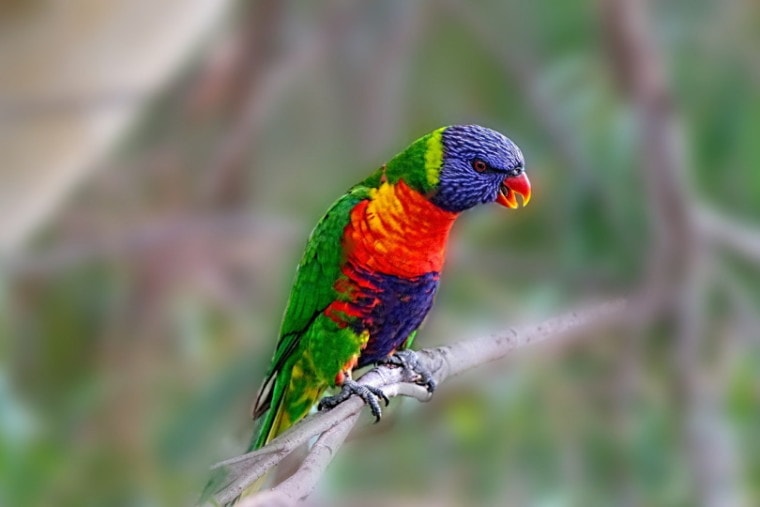
Parrots are pretty noisy creatures, but that can be a good thing. They’re known for their intelligence and ability to mimic sounds from the outside world. But sometimes they do it when you don’t want them to or in an annoying way – like when you’re trying to sleep at night! So why do parrots scream?
In this article, we’ll go over eight reasons why birds scream and how to stop it. Whether you have one parrot or six of them, this article will teach you what causes parrot screaming so that your home is more peaceful.
How Do Parrots Scream?
Singing and screaming are distinct behaviors for parrots. By definition, singing is voluntary and involves some kind of melody. Screaming, on the other hand, is involuntary and is usually a negative behavior.
Some parrot species are known for having unique screams. When you hear them in real life, it’s much more sad than annoying! That’s because we don’t really expect birds to shriek like that.
The 8 Reasons Why Parrots Scream
1. Sadness or Boredom
Parrot’s screams are often the result of sadness or frustration. The bird may be longing for more attention from its owner, trying to get out of a cage, or waiting for its next meal!
Sometimes birds just want some excitement in their lives! No need to feel sorry for your pet when he’s screaming – instead, try to give him something better to do.
It’s a well-known fact that parrots can become depressed. If you’re too busy to give your pet all the attention that it wants, at least makes sure there’s another fully-grown parrot in the house!

2. Parrots Are Calling Their Babies!
Some types of birds (such as African grey parrots and macaws) are known for screaming when they find their babies. It’s a serious business for these birds, and they have a peculiar noise for it.
If your bird is a parent, you might have to get used to this terrible sound. It’s a great thing for your pet, mind you – so don’t complain!
3. Aggression or Lack of Trust
Parrot species that are known for their distinctive screams are also usually well-known for being feisty and aggressive. The primary cause for this behavior is fear of predators. These birds have evolved to live high in the trees, where they can see threats approaching.
Another cause for screaming could be a general lack of trust in the owner or caregiver. Young parrots may imprint on their caregivers as parents, leading to aggressiveness towards other people. Don’t take it personally!
When strangers are around, a parrot is likely to indicate its distrust with an ear-piercing scream. If the owner doesn’t intervene, the bird might even attack.
If your parrot screams when it’s around other people or animals, consider getting another pet for it to play with. In this case, two birds are better than one – your parrot will have better companionship and learn to trust one or more other animals.
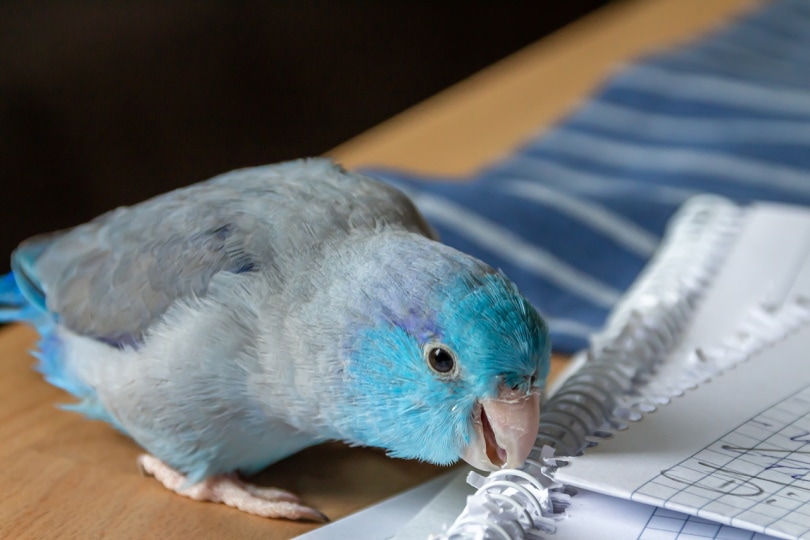
4. Not Enough Exercise
Parrots are busy little creatures. They need plenty of room to run around and build their muscles. If they’re sitting in a cage all day long, it’s natural that they’ll want to do whatever they can to get out!
If your parrot is screaming because you’ve forgotten to let him outside one too many times, remind yourself about the importance of exercise. Also, if you plan on training your parrot using positive reinforcement, be extra careful not to overwork the bird.
Parrots should get at least a few hours of flight each day. If your bird is in a cage on its own, consider moving it to a larger space where you can interact with it more.
5. Nervous Behavior

Some species, such as budgies or cockatiels, are known for their nervous behavior and general skittishness. A large, noisy room or a public place (such as a pet store) can be very frightening to these birds.
These species may also scream if they’re being rolled up in something like a towel – this makes them feel confined and claustrophobic. You should carry your parrot in an open-handed manner so that it can see everything around them.
6. Hunger or Thirst
Parrots that are hungry or thirsty will assume that you’re ignoring them! After a while, they’ll start screeching their heads off to get some attention from you.
If your bird is screaming because it’s getting too hungry to wait any longer for dinner, make sure you give it plenty of food and water during the day. If this doesn’t solve the problem, try changing its schedule – if possible, feed it at regular times instead of just whenever you remember.
7. Is It Time for a Bath?
It’s best to bathe birds using warm water. Sometimes you might want your parrot to get used to the idea of bath time, especially if it hates getting wet! In this case, try putting only a small amount of warm water into its cage.
As soon as the bird gets wet, remove it from the cage and start bathing it immediately. This will make sure that there are no negative associations with bathing – just positive ones!
If your parrot is screaming because you’ve forcibly put water on him (for example, by splashing him with a cup), be more gentle about these things. If he screams when you’re giving him his regular shower or bath, consider shortening the time he spends in the water.
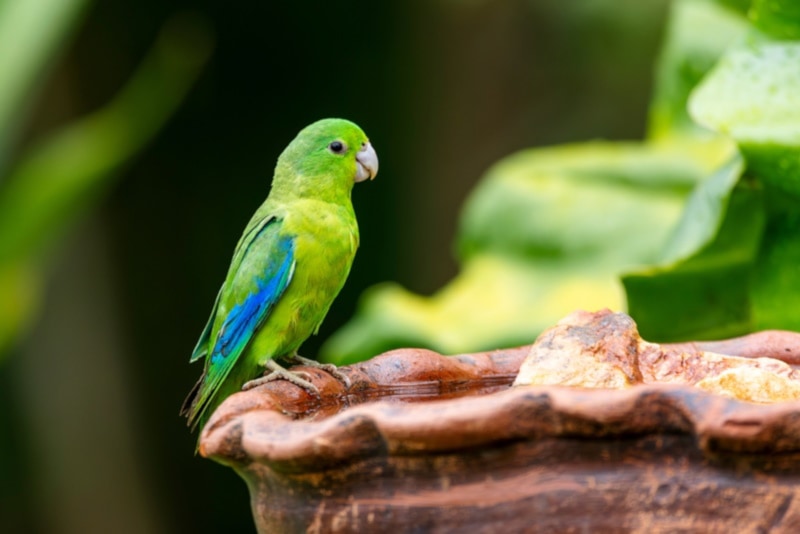
8. Fear
Parrots, especially larger ones like macaws, are not used to seeing or hearing flashes of light or loud bangs. If things like doors slamming or pots falling cause your bird to screech, it may be more accustomed to living with other birds (like chickens) than being around humans.
Try creating an environment where you can control what kinds of sounds and sights your parrot sees every day. Things like playing classical music CDs or putting up decorations will make your home seem much more familiar and less scary.
If you’re still having trouble, consider talking to an animal behaviorist who might even be able to help create an exceptional environment for your parrot that also makes it feel safe.
- Related Read: Why do Parrots Talk? 3 Main Reasons
How to Stop Parrot Screaming
If you’re wondering why your bird is screaming so much, you’ll also need solutions. There are many ways you can get your parrot to stop screaming, so it’s easier to start this off with how not to do it. Scolding, hitting, or screaming back at your parrot will not work and will only make things worse.
We want to figure out why he’s screaming in the first place and then help him with it. Sometimes, it may be a definite cause – such as the ones listed above. Other times, you may need to look at his personality to find out what makes him scream.
Here are a few things you can do to stop screaming when all else fails.
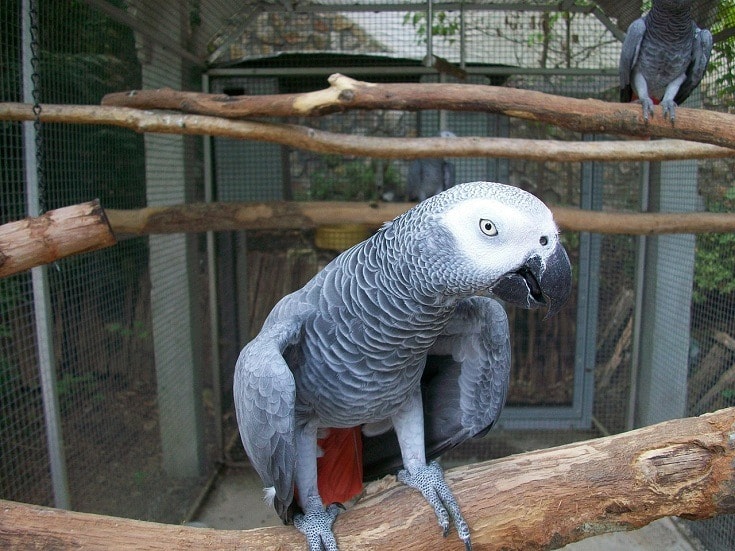
1. Take a Vacation
If your parrot is used to seeing you all day long, he might start feeling lonely if you’re gone for any longer than an hour. It’s best to leave him with a friend who’ll come over every so often just to hang out and talk to your parrot (or even take care of feeding time).
Parrots are smart enough to know that you’re not anywhere near them when you leave, so try taking an extended break from each other. This could potentially help your parrot start learning how to be alone without screaming at the world!
2. Check for Medical Problems
Parrots can have all sorts of medical problems that may require medication or even surgery (depending on the problem). If your pet is continually screeching and nothing else seems to work, it might be worth speaking with an avian veterinarian about any potential health issues.
Although this sounds expensive initially, consider getting better treatment than risking having to give up on your parrot entirely!
3. Eye Contact
When a parrot sees a person’s face staring directly at it, it gets frightened. It doesn’t understand what’s going on, and sometimes, it can even feel threatened! Try to reduce the amount of eye contact you make with other people – if possible, don’t stare at them while talking or while they’re screaming. Instead, try turning your head sideways, so you seem less scary.
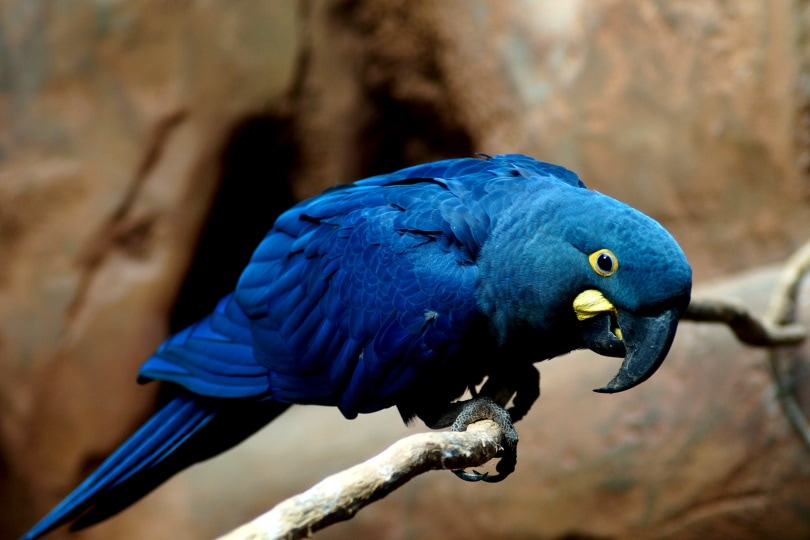
4. The Screaming Is Contagious
If you often hear a parrot around other people who scream as well, he may have picked up this habit from them. You’ll definitely want to work on getting rid of the throaty screeching that makes your parrot go nuts – but in some cases, you might need to keep him away from certain people as well!
5. Noisy Toys
Sometimes, a parrot will scream from excitement when it sees its new toy or because of the constant noise that comes with some interactive toys. Consider switching to wooden chew toys (or even cloth) if you notice your parrot is screeching due to hearing piercing noises.
6. Consequence-Driven Training
If nothing else works, try using consequence-driven training on your parrot! This means that whenever you hear screaming, ignore him completely for at least a minute and see if he starts getting bored without making any noise. Then give him something else to do – like offering him his favorite perch or giving him more attention! You may need someone else to help out with this since, eventually, your bird should learn how to make less noise when he’s alone.
This training technique will not guarantee instant results, but it should be long-lasting.
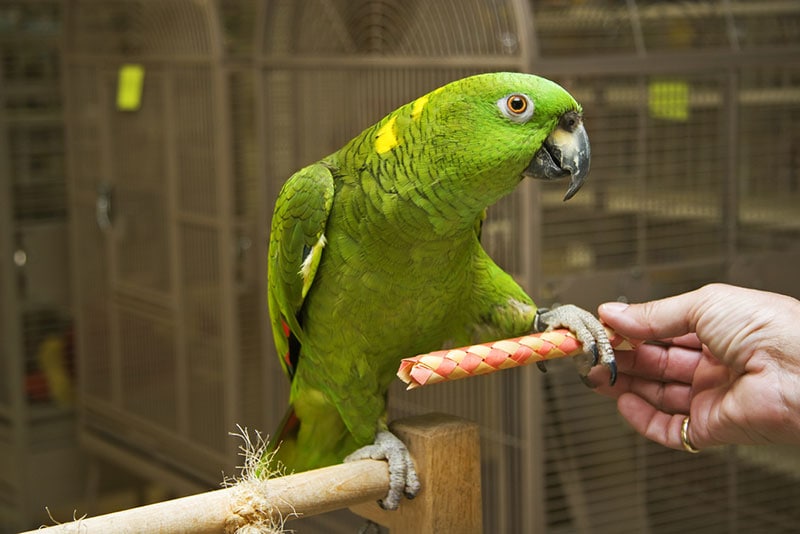
Final Thoughts
When a parrot screams, it’s often difficult to tell exactly why it’s doing so! You’ll need to try different things and test out new ideas until you find one or more ways that work well for your individual pet. If all else fails, don’t hesitate to take your pet back to the breeder from whom you got him – they will know of any possible genetic problems and will want what’s best for both you and your bird.
Remember: there are plenty of reasons why parrots scream – but with a little patience, you can work towards stopping the screaming and start enjoying what makes parrots great pets.
- You May Also Like: Top 7 Quiet Pet Birds (With Pictures)
Featured Image Credit: Orapun Talalak, Pixabay







